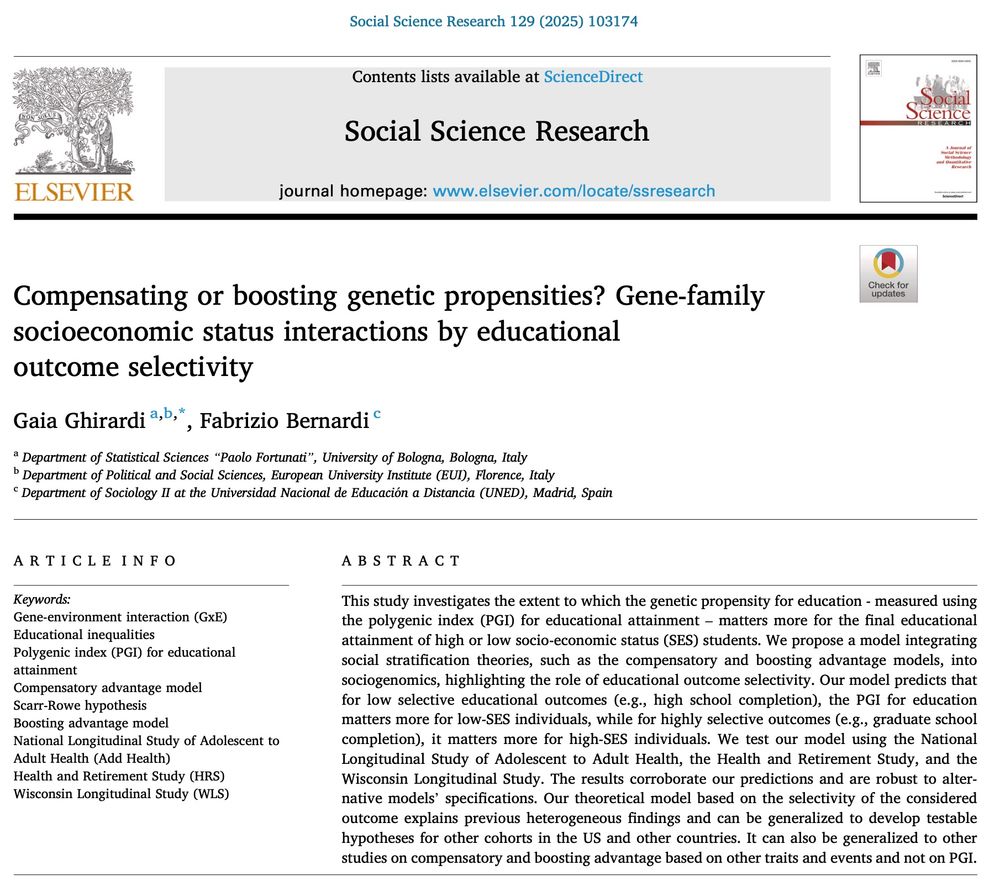Asta Breinholt
@astabreinholt.bsky.social
240 followers
410 following
14 posts
Sociologist at Roskilde University researching social inequality in education, parenting, and the interplay between genetics and the social environment.
Posts
Media
Videos
Starter Packs
Reposted by Asta Breinholt
Asta Breinholt
@astabreinholt.bsky.social
· Apr 11
Asta Breinholt
@astabreinholt.bsky.social
· Apr 11
Reposted by Asta Breinholt
Reposted by Asta Breinholt
Asta Breinholt
@astabreinholt.bsky.social
· Apr 11
Asta Breinholt
@astabreinholt.bsky.social
· Apr 11
Asta Breinholt
@astabreinholt.bsky.social
· Apr 11

Heterogeneity in parental time with children: trends by gender and education between 1961 and 2012 across 20 countries
Abstract. This article investigates the level and dynamics of heterogeneity in parental childcare time using data from the Multinational Time Use Study acr
academic.oup.com
Asta Breinholt
@astabreinholt.bsky.social
· Apr 11
Asta Breinholt
@astabreinholt.bsky.social
· Apr 11
Asta Breinholt
@astabreinholt.bsky.social
· Apr 11

Hidden patterns of inequality: The heterogeneity in parenting within educational groups
When sociology deals with differences within groups of similar socioeconomic status, research and theorizing tend to focus on the heterogeneity among …
www.sciencedirect.com
Asta Breinholt
@astabreinholt.bsky.social
· Dec 16
Reposted by Asta Breinholt
Gaia Ghirardi
@gaiaghirardi.bsky.social
· Dec 12
Asta Breinholt
@astabreinholt.bsky.social
· Dec 12
Asta Breinholt
@astabreinholt.bsky.social
· Dec 12
Reposted by Asta Breinholt
Aleksi Karhula
@aleksikarhula.bsky.social
· Nov 25

Lives in Welfare States: Life Courses, Earnings Accumulation, and Relative Living Standards in Five European Countries1 | American Journal of Sociology: Vol 130, No 2
How do work and family life courses differ in welfare states with varying emphasis on the state, market, and family for welfare provision? The authors compare life courses until midlife in Denmark, Fi...
www.journals.uchicago.edu
Reposted by Asta Breinholt



